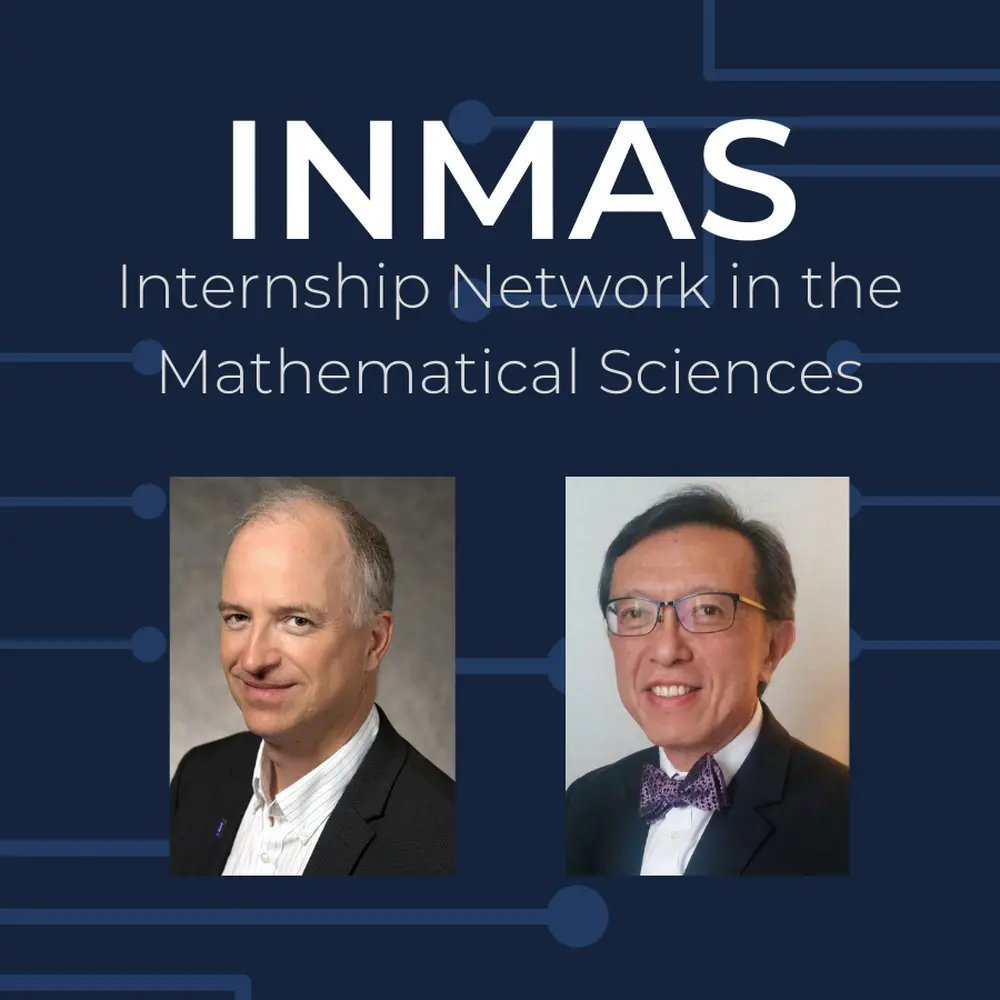
Mathematical sciences departments prepare PhD students primarily for careers in academia. Due to a substantial growth in PhD programs across the U.S., the number of PhDs produced (around 2000 in 2019) is now much greater than the number of tenure-eligible jobs available (around 750 in 2018). Many students realize belatedly after a few years in postdoctoral positions that careers in business, industry and government (BIG) would offer better opportunities.
Richard Laugesen, professor of mathematics at University of Illinois Urbana-Champaign, and Fadil Santosa, head of applied mathematics and statistics at Johns Hopkins University, recognized this vast need to provide training and career experiences to graduate students that prepare them for mathematically meaningful career paths in BIG. At the same time, they saw the potential impact of mathematics to elevate the capabilities of small-to-medium sized companies.
Thus, Inmas – the Internship Network in the Mathematical Sciences – was conceived.
The vision is to create regional networks of mathematical sciences departments that provide training and internship experiences to prepare students for BIG careers. The funding of up to $4 million over five years from the National Science Foundation’s (NSF) Division of Mathematical Sciences will create two networks: one anchored at the University of Illinois and one at Johns Hopkins University. These hubs will connect with nodes, which are nearby institutions having sizable PhD production. The Math Alliance – a nation-wide mentoring network for underrepresented or underserved students in the mathematical sciences – will participate as a virtual node.
The network will organize systematic training programs on technical and professional skills to prepare students for productive internships in BIG. Students will be carefully matched with internship projects, which are created through the efforts of specialist project developers.
This project will also simultaneously strengthen the competitiveness and effectiveness of BIG organizations. Interns will create new research and development tools that lead to greater efficiency, productivity, and profitability. Problems arising from industry can find their way back into the classroom and initiate new research topics in mathematics and statistics. Students will be impacted not only educationally, but personally as these internships have the potential to change the direction of many graduate students' lives. Finally, engagement of students from underrepresented groups increases diversity in BIG and opens doors toward high-ranking positions for students, where they may also serve as role models.
“This program will meet the critical need for training the next generation of mathematical scientists and data analysts in business, industry, and government,” says Dr. Juan C. Meza, director for the NSF Division of Mathematical Sciences. “In addition, the program also helps small to mid-sized companies by providing them with mathematical expertise to enhance their competitiveness.”
Laugesen and Santosa are optimistic that this project will bring greater appreciation of the power of the mathematical sciences, especially at small-to-medium-sized organizations. “We hope Inmas will bring about a culture change in universities towards stronger and mutually beneficial engagement with BIG, and we look forward to the day when graduate career paths from the mathematical sciences to industry and government are visible, valued and viable.”